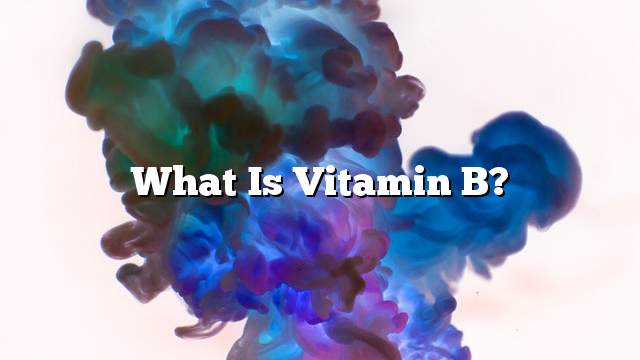What is Vitamin B?
Vitamins are compounds that differ in their chemical composition, but all are similar in the health and nutritional benefits they provide to the body. Vitamin B is one of the most important vitamins that the body needs. It is known that vitamins are not produced by the body itself but need to eat foods and substances rich in it, As well as the vitamin B12, which is stored in the liver.
Vitamin B functions
- Regulate vital processes in the body and stimulate energy production.
- Helps to perform enzymes functions properly and naturally.
- Regulate the functions of the nervous system.
- Production of red blood cells.
- Maintain healthy hair and skin.
- Strengthen the immune system of the body.
Vitamin B groups
Thiamine
Vitamin B1 is important in converting glucose to energy, in addition to its importance in the formation of the nervous system. This vitamin can be obtained from whole grains, legumes, nuts, yeast, red meat, eggs and flour. The deficiency of this vitamin causes many complications such as confusion, irritability, Laziness and muscle weakness, also affects cardiovascular health, paralysis of the eye muscle and mental malformation.
Riboflavin
This vitamin helps to produce energy, improve vision and get a healthy skin. It can be obtained from milk, yogurt, cheese, eggs, leafy vegetables and liver. Vitamin deficiency causes red inflammation of the tongue, red cracks in the mouth, eyelid inflammation, loss of hair and rash.
Niacin
This vitamin converts carbohydrates and fats into energy and has a role in maintaining the health of the nervous system and digestion and get a healthy skin, and can get this vitamin from meat, fish, mushrooms, eggs and nuts, and cause excessive redness of the eye and nausea and liver damage, and causes lack of inflammation in the skin Tongue and anorexia.
Pantothenic acid
This vitamin plays a role in the production of red blood cells and cytotoxic hormones, which can be obtained from milk, meat, liver, eggs, peanuts and legumes, leading to insomnia, fatigue, constipation and stomach disorders.
Folic acid
In addition to its important role in the formation of the nervous system and DNA of the fetus, this acid can be obtained from citrus, green leafy vegetables, liver, eggs and poultry. This deficiency causes anemia, weight loss and fetal abnormalities during pregnancy.
Vitamin B12
This vitamin produces melanin in the nerve cells and increases the mental abilities of the person and produces red blood cells, an important source of this vitamin eggs, meat and liver, and causes lack of anemia, loss of appetite, fatigue, insomnia, depression and sometimes paralysis.
